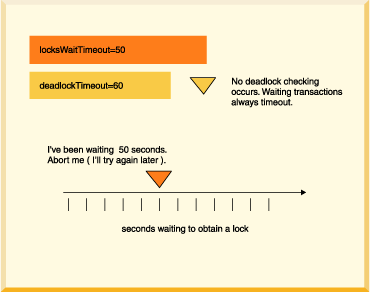Deadlocks are situations where two or more transactions lock each other cross-wise so that no transaction will ever be able to proceed. Usually deadlocks are caused by the application design. If SAP HANA recognizes a deadlock based on a transactional lock, one of the transaction will be terminated and the following error is issued. Application That Can Deadlock The first time a user sees the following message, the result of an unhandled deadlock error in SQL Server, it can come as quite a shock. Integration in WinForms applications. The WinForms library automatically installs the WindowsFormsSynchronizationContext during the creation of the first Windows control.

Balabolka free download. Currently we are using CAP Java. In the ‘before’ section of our CDS event handlers, we are trying to run a UPSERT on the database, so it will be timely up-to-date to provide real-time data.
However two (or more) calls simultaneously access the before handle, which causes the transaction rollback described in this article (it says the transaction is rolled back because a deadlock is detected).
See Full List On Developer.com
- Can you (or anyone else) confirm that a transaction has already begun when the before handle is accessed?
- Can you confirm that no two transactions are allowed to write to two different tables in the same database model? (Because that is what seems to be happening).
- Finally how can we solve this, given that we really need to update/insert into tables in that before handle? We are thinking: is there some sort of way to manipulate the transaction behaviour? Maybe use Update and Insert instead of Upsert?
Identifying And Resolving Deadlocks In Azure SQL Database ..
Thanks…

Kjeld
Currently we are using CAP Java. In the ‘before’ section of our CDS event handlers, we are trying to run a UPSERT on the database, so it will be timely up-to-date to provide real-time data.
Application That Can Deadlock Definition
However two (or more) calls simultaneously access the before handle, which causes the transaction rollback described in this article (it says the transaction is rolled back because a deadlock is detected).
- Can you (or anyone else) confirm that a transaction has already begun when the before handle is accessed?
- Can you confirm that no two transactions are allowed to write to two different tables in the same database model? (Because that is what seems to be happening).
- Finally how can we solve this, given that we really need to update/insert into tables in that before handle? We are thinking: is there some sort of way to manipulate the transaction behaviour? Maybe use Update and Insert instead of Upsert?
Resolving Deadlocks In SQL Server 2000
Thanks…
Kjeld

